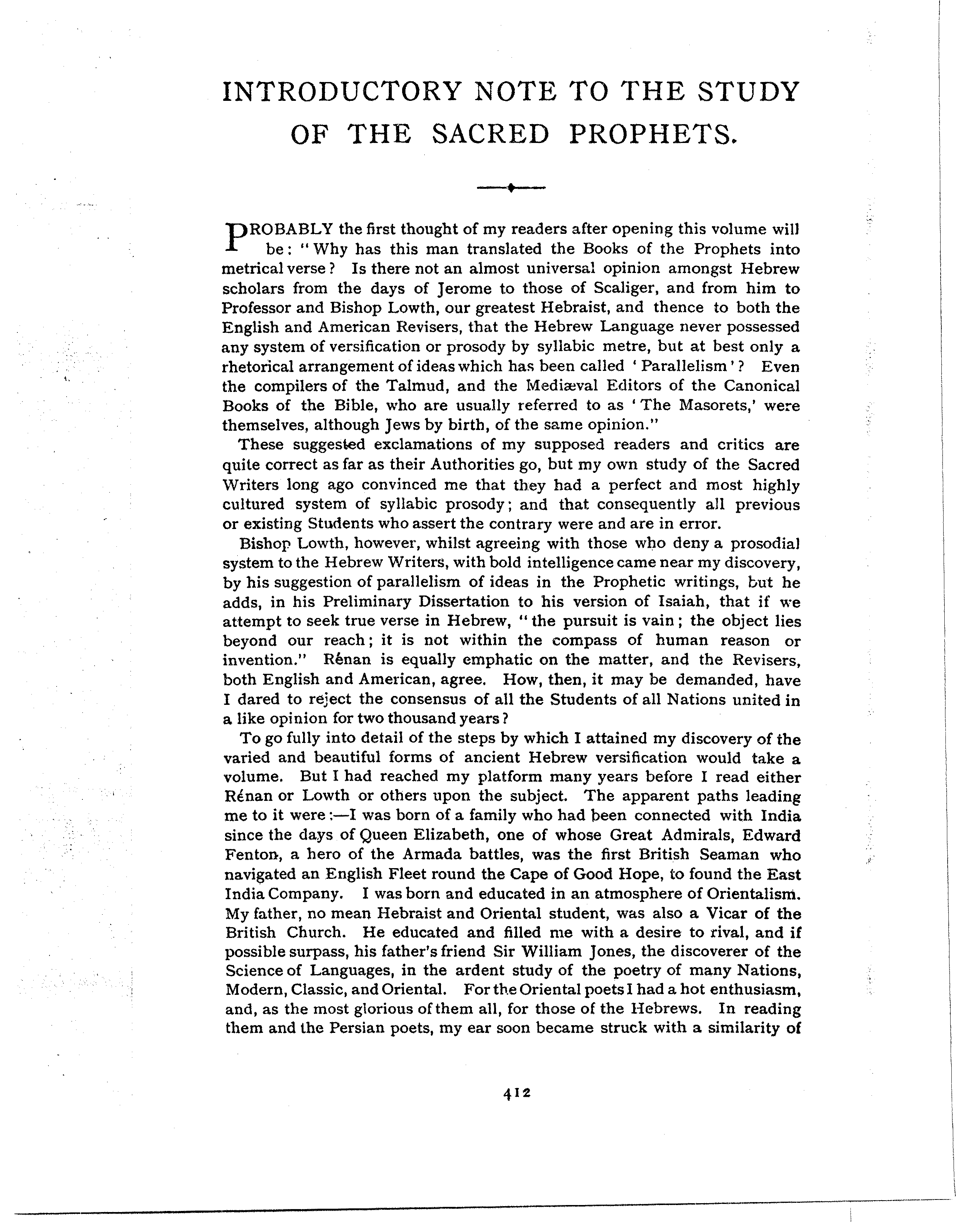II Kings - Ferrar Fenton Bible Translation page 412
The History of the People of Israel
INTRODUCTORY NOTE TO THE STUDY OF THE SACRED PROPHETS
ROBABLY the first thought of my readers after opening this volume will Why has this man translated the Books of the Prophets intometrical verse? Is there not an almost universal opinion amongst Hebrew scholars from the days of jerome to those of Scaliger, and from him to Professor and Bishop Lowth, our greatest Hebraist, and thence to both the English and American Revisers, that the Hebrew Language never possessed any system of versification or prosody by syllabic metre, but at best only a rhetorical arrangement of ideas which has been called ‘ Parallelism ’ ? Even the compilers of the Talmud, and the Mediaeval Editors of the Canonical Books of the Bible, who are usually referred to as 'The Masorets,’ were themselves, although ]ews by birth, of the same opinion. These suggested exclamations of my supposed readers and critics are
quite correct as far as their Authorities go, but my own study of the Sacred Writers long ago convinced me that they had a perfect and most highly cultured system of syllabic prosody; and that consequently all previous or existing Students who assert the contrary were and are in error. Bishop Lowth, however, whilst agreeing with those who deny a prosodial
system to the Hebrew Writers, with bold intelligence came near my discovery, by his suggestion of parallelism of ideas in the Prophetic writings, but he adds, in his Preliminary Dissertation to his version of Isaiah, that if we the pursuit is vain; the object lies beyond our reach; it is not within the compass of human reason or Rénan is equally emphatic on the matter, and the Revisers, both English and American, agree. How, then, it may be demanded, have I dared to reject the consensus of all the Students of all Nations united in a like opinion for two thousand years? T 0 go fully into detail of the steps by which I attained my discovery of the
varied and beautiful forms of ancient Hebrew versitication would take a volume. But I had reached my platform many years before I read either Rénan or Lowth or others upon the subject. The apparent paths leading me to it were 1-—-I was born of a family who had been connected with India since the days of Queen Elizabeth, one of whose Great Admirals, Edward Fenton, a hero of the Armada battles, was the first British Seaman who navigated an English Fleet round the Cape of Good Hope, to found the East India Company. I was born and educated in an atmosphere of Orientalisrn. My father, no mean Hebraist and Oriental student, was also a Vicar of the British Church. He educated and filled me with a desire to rival, and if possible surpass, his father's friend Sir William jones, the discoverer of the Science of Languages, in the ardent study of the poetry of many Nations, Modern, Classic, and Oriental. For the Oriental poetsl had a hot enthusiasm, and, as the most glorious of them all, for those of the Hebrews. In reading them and the Persian poets, my ear soon became struck with e. similarity of 412
